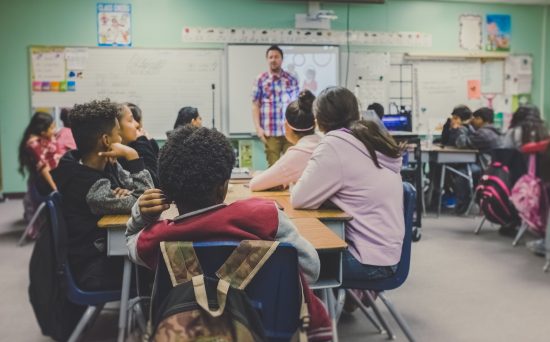The darkness surrounds me as I lie in bed. I find it impossible to get up and start my day. Existence is painful and meaningless. I am obsessed with the idea of ending this misery and am unable to find purpose, or to find pleasure, or to find anything to make life worth living. I am only 15 years old.
 As a youth, I had the false idea that mental illness was a choice. When I began developing symptoms, I had no knowledge, or education regarding mental illness. It was never discussed in school, or at home. This greatly contributed to my feelings of guilt, confusion, depression and anxiety. In high school, when my symptoms became apparent to my peers, I was ostracized and alienated. I was not able to talk to anyone about what I was going through. None of us knew how to discuss mental illness. I was afraid, alone and in anguish.
As a youth, I had the false idea that mental illness was a choice. When I began developing symptoms, I had no knowledge, or education regarding mental illness. It was never discussed in school, or at home. This greatly contributed to my feelings of guilt, confusion, depression and anxiety. In high school, when my symptoms became apparent to my peers, I was ostracized and alienated. I was not able to talk to anyone about what I was going through. None of us knew how to discuss mental illness. I was afraid, alone and in anguish.
As I look back, early education about mental illnesses and mental health would have prevented a significant amount of suffering and made it easier for me to seek help. This not just my story. About 1 in 5 adults in our country experience mental illness every year.
Over 11 million Americans experience a serious mental illness that substantially interferes with one or more major life activities (NIMH, n.d.). Approximately 1 in 6 American youth, aged 6-17, experience mental illness each year; and 50% of all mental illness begins by age 14. (Mental Health by the Numbers, NAMI). Over 350 million people in the world suffer from depression alone (Global Burden of Diseases, Injuries and Risk Factors Study, 2013, World Health Organization).
Even though mental illness is prevalent, I have experienced a lot of damaging stigma. In college in the state of Washington, I openly shared that I had mental illnesses; and when I did so, I was ostracized. Most of my peers avoided me and would have no contact with me. Stigma is widespread. Because of stigma, I felt ashamed, concluding that I needed to keep my mental illnesses a secret, and I suffered the consequences.
A RAND study found that 30% of Californians said that they were “unwilling to move next door to someone with a serious mental illness,’ while 28 % said that they were “unwilling to work closely on a job with someone with serious mental illness.” (Collins, et.al. 2015).
Experts like Alexis Malatesta, the Youth Education Coordinator at the Mental Wellness Center in Santa Barbara, believe that stigma is a negative and unfair belief about someone who is experiencing a mental health disorder, and is a result of false information, lack of education and ignorance. Ms. Malatesta helps oversee a program called Mental Health Matters, where 6th graders and others are educated about mental health, mental illness disorders (including anxiety, depression, ADHD, bipolar, schizophrenia, eating disorders and stress-related disorders), and how to talk about these issues compassionately and empathetically. Because most mental health disorders begin around age 14, educating youth before or at this age helps to prevent misconceptions, reduces stigma and improves empathetic and compassionate treatment for those who begin to develop symptoms.

Mental Health Matters is an outstanding program, but currently it is optional in the Santa Barbara Unified School District. Some 6th grade English teachers use the curriculum, but not all. This information is so vital and important, with the potential to prevent stigmatization, suffering and even suicide, I believe it should be a part of the Core Curriculum in 6th grade elementary education throughout our community, so that all students should have the opportunity to learn about mental health.
 All humans deserve to be treated fairly and equitably and should not be stigmatized for their personal struggles. Early education may not remove all stigma from mental illness, but it would make a big difference. The cost of making Mental Health Matters a required curriculum in our schools is minimal, while the benefits would be substantial. Mental health no longer needs to be a closeted issue. People who have mental illness can seek effective treatments, live full and meaningful lives, and are no longer locked in the basement or in institutions.
All humans deserve to be treated fairly and equitably and should not be stigmatized for their personal struggles. Early education may not remove all stigma from mental illness, but it would make a big difference. The cost of making Mental Health Matters a required curriculum in our schools is minimal, while the benefits would be substantial. Mental health no longer needs to be a closeted issue. People who have mental illness can seek effective treatments, live full and meaningful lives, and are no longer locked in the basement or in institutions.
Education made a huge difference in my experience with mental illness. I was fortunate to have supportive parents who also received education to help me through my difficult times and get treatment. I found professionals I could speak to and develop coping skills. However, this was in my mid- to late 20’s. If I were educated earlier, I could have avoided years of intense personal struggle and pain. I know many other youth who are going through similar struggles. My wish for them is that they can receive earlier education and do not have to deal with the same stigma and alienation that I experienced. I strongly urge the Santa Barbara Unified School District to seriously consider making Mental Health Matters a required part of the 6th grade curriculum.





